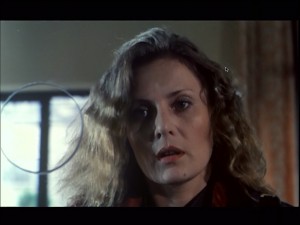I
wrote this discussion of the sixth Dekalog film some time ago and it appears
elsewhere on the blog. Seeing it again hasn’t altered my opinion. A masterful
film about the complex lives of disconnected people, again.
A LONELY young man living somewhere
in urban Poland lives in a crowded tenement apartment block and becomes fixated
on a woman of around 30-35 who lives in a similar sized apartment opposite.
Like James Stewart in ‘Rear Window’, he finds the goings on in the apartment
interesting and becomes obsessed, watching with a well -trained pair of
binoculars. The woman occasionally takes a lover, other times going to the
fridge or unwinding from a busy day, often in underwear, oblivious to the
hungry male eyes peering at her.
Krzysztof Kieslowski is an
imaginative and daring film director, somewhat in the style of Michael Haneke,
in that his audience is often made to feel unsettled. Each time I see one of
his films I know I am in for an engaging and truthful ride about ordinary
people who somehow find themselves in extraordinary circumstances. ‘A Short
Film About Death’ was about an unhinged young man, who seemed to be like many
troubled people you might find anywhere on the streets, who happens to
unexpectedly murder a taxi driver in bloody and gruesome circumstances. The
murder is compelling in its unexpectedness and the taxi driver is totally
vulnerable and unsuspecting. It is the manner of the killing that is
compelling. He takes a long time to die, after prolonged attempts at
strangulation, only to find that he is finally bludgeoned by a rock. Even the
killer seems to be grimacing by this point. Like Macbeth, he goes so far, and
there seems to be no turning back. Both ‘Death’ and ‘Love’ are part of a long
series of films based on the 10 commandments under the title ‘Decalogue.’
‘A Short Film About Love’, begins with the
young man named Tomek breaking into what
looks like some sort of laboratory, stealing a telescope, intercut with scenes
of the young woman in her flat playing cards and pacing about with a paintbrush
in a state of undress. When he gets home he begins what will become a nightly
ritual of preying on her with his hungry eyes. Of course the film won’t be much
unless, like ‘Rear Window’, the subject is interesting and complex in some way.
The young woman doesn’t let him down.

To add intrigue to the personality
of the young voyeur, we get glimpses of the
lonely home life he shares with his doting grandmother. She ironically
asks him to watch ‘Miss Poland’ on the TV, an innocent form of voyeurism, very
different to his own version of Miss Poland across the way.
There are phone calls, ones he makes
to her, as if the dispassionate distant view of her isn’t enough and he needs
to hear her voice. Then he makes the discovery that she has a lover and the
sexual embrace turns him away momentarily from the telescope, just when we
thought this might ramp up his attention. So, it seems, he is curiously
emotionally involved. Another lover. The
same response. This time, in one of the few comic moments in the film, he picks
up the phone when he sees the embrace and rings the gas company about an
imaginary leak, in her apartment. He
is going to do his best to interrupt things. The gas man’s voice on the phone
says ‘don’t light anything.’ When he hangs up he immediately lights a
cigarette. The gas men come around, superfluously of course, and it works a
treat. The love making is disrupted, the mood broken. Tomek laughs devilishly,
and in a sudden burst of anger punches a hole in his wardrobe door. It is
unsettling and is the first sign of potential derangement.

There is the expected anger and
disbelief when Tomek catches up with the woman in the street and tells her he
watches her through her window. Later, when the woman challenges Tomek over the
reasons he watches her, he tells her in candid fashion it is because he loves
her. When she asks him if he wants to kiss her, sleep with her, her experience
enters a new realm. She is an object of brutal desire for men, but Tomek is
more complicated. He is simply different. He has an emotional need for her that
her playboys don’t have. And she finds it fascinating, and appealing.
When Tomek does summon the courage
to see her again, he appeals to her in traditional fashion by knocking at her
door and asking her for a date for ice cream!
The date organised, Tomek whirls around in circles dragging his milk
crate. Kieslowski is presenting Tomek as a child, emotionally stunted. He
craves attention and affection and is spectacularly inexperienced. These two
are a very unusual match. In a beautifully realised scene, played simply and
almost without music, the woman can see two lovers behind her in the café, the
male lovingly caressing the female’s hands. She wants this too. She establishes
that Tomek has taken her mail, has watched her for a year, and has sent her
false money orders via his job at the post office- basically acknowledges in an
understated way that this is ‘harassment’:
and yet she wants him to caress her hands.

At her apartment Tomek can see where
she lives for the first time without a telescopic lens. Her tenderness and
close proximity are unbearable for him, and in a scene vaguely reminiscent of
Ian McEwan’s ‘On Chesil Beach’, Tomek
suddenly runs home, humiliated.
Shifts occur. She turns casual
lovers away. She has real feelings for another man. And she briefly turns into
voyeur as she tries to tenderly watch over Tomek as she fears for his mental
health. As a basin of water turns red with blood, we remember that Tomek has
been associated with blood before, blood-red as in violence. Her colour has
been white, as in spilt milk when she cried one evening and turned the milk
bottle over. She has been in need of the milk of human kindness since the
beginning and having found it, is desperate to keep it.
Towards the end of the film the
roles are reversed as the woman’s tenderness is awakened and she continually
looks out for Tomek who has been recuperating in hospital. She becomes a kind
of tender voyeur, as his telescope is replaced by her opera glasses. In another
interesting reversal at the very end, she watches over her apartment from
Tomek’s telescope in a kind of fantasy play, and can see herself crying over
the spilt milk from an earlier scene in which she is crying and at her lowest
ebb. Suddenly Tomek appears in the frame and comforts her, tenderly. It is how
things might have been. The tragedy therefore is the distance that the two
lonely lovers can’t bridge. The music in these final moments is haunting and
slow and meditative. This film is a kind of grown up ‘Romeo and Juliet’ and
moving in every way. The emotions may have initially appeared cheap but they
have turned in the end to something profound.


No comments:
Post a Comment